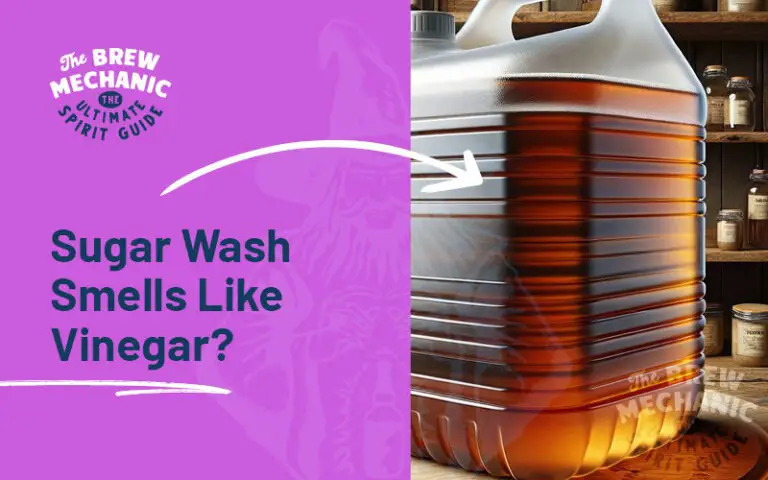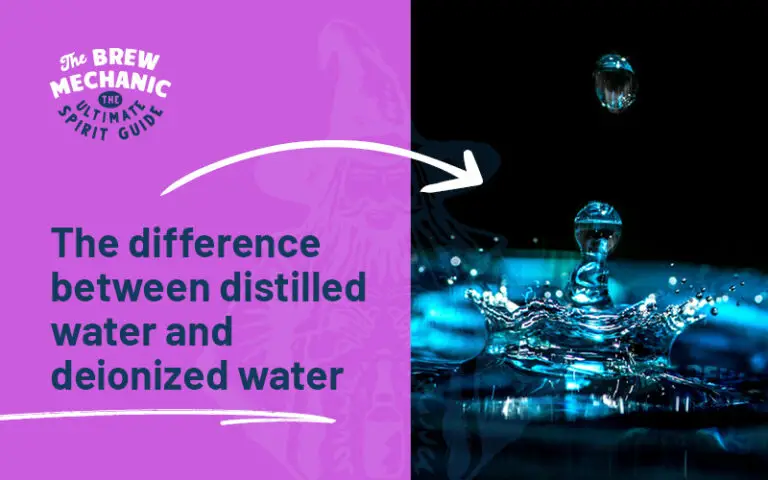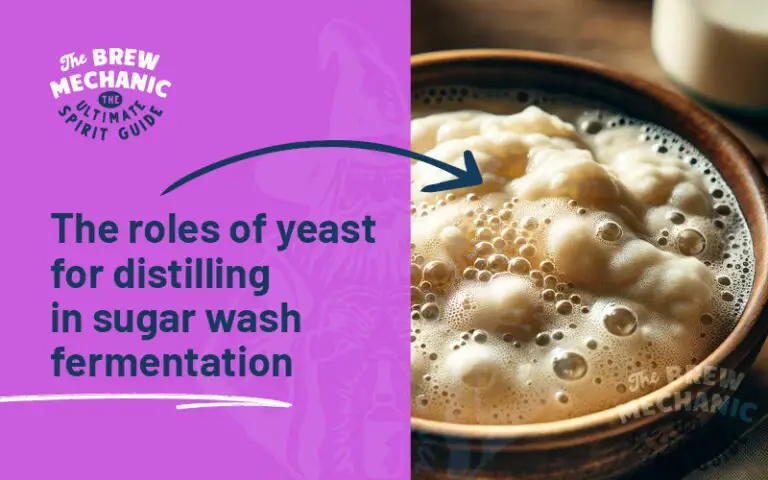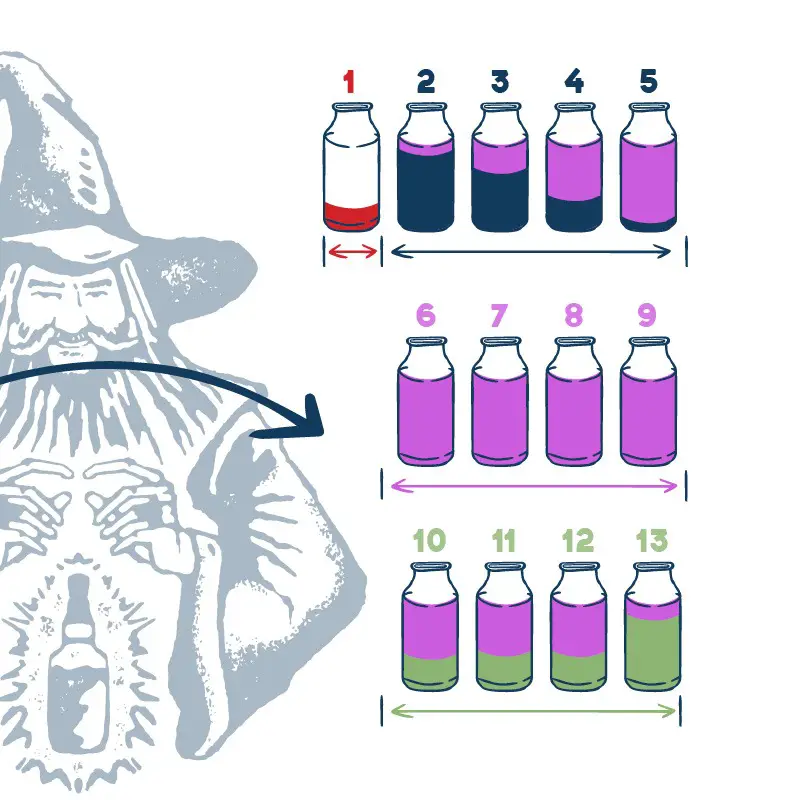Sugar Wash Methanol Risks: The Safest Option for Beginner Distillers
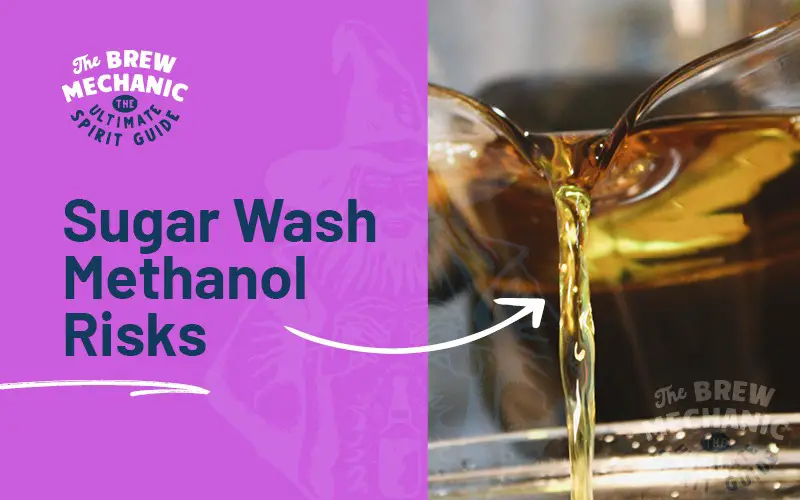
There is no sugar wash methanol risks in a brew with sugar
So let’s be clear there are no sugar wash methanol risks involved. Now let’s dive into it for more context.
Methanol (CH3OH) known as MeoH (wood alcohol) boiling point of 64.9°C (148.82°F) is a toxic alcohol that’s produced during the fermentation process, it is found in fruit spirits, citrus fruits, and corn, (Pectin starch) recipe.
Methanol is a common contaminant in fermenting a “mash”, of corn, and barley with yeast, you must make accurate cuts in your distillate to remove all contaminants. During the distillation, be wary of the foreshots, heads and tails. Hearts is the good stuff. This product comes off in the form of foreshots/heads in distilling when making cuts.
How do you know if you produce methanol in your alcohol
What is Moonshine
Technically moonshine is made in a pot still and not a reflux still. The ethanol made in a pot still has lots of flavours. Moonshine is from the bootlegging days in America that were outlawed due to tax laws. This is where you have heard the stories about the amounts of methanol produced being unsafe and just plain dangerous.
If you are just starting to learn how to distil alcohol, you might be wondering what type of wash/mash route to take.
The answer is simple
Sugar wash. Sugar wash is the best and safest wash to start with, ideal for beginners. One of the reasons it contains little to no quantities of methanol in a sugar wash.
Secondly, you will learn to make cuts, make a simple sugar wash brew, ph control, fermentation, blending, smoothing alcohol using activated carbon, operation of the reflux still, abv and various variables linked to the sugar wash which will help you with a pot still.
Remember at the end of the day which route you take is your decision.
What is easier a sugar wash brew or a mash using grains
Simple Chemical breakdown of a sugar wash brew
A sugar wash is a wash made up of sugar, yeast, and nutrients. Start with opening density, allow to ferment to the required density then stopped by adding a coagulant. You can also determine the amount of alcohol expected from the batch by simply subtracting the opening SG from the final SG x Factor = alcohol.
The other plus is you can buy pre-made packets with yeast and nutrients (Turbo yeast range). Simply add sugar water then the packet with everything in it.
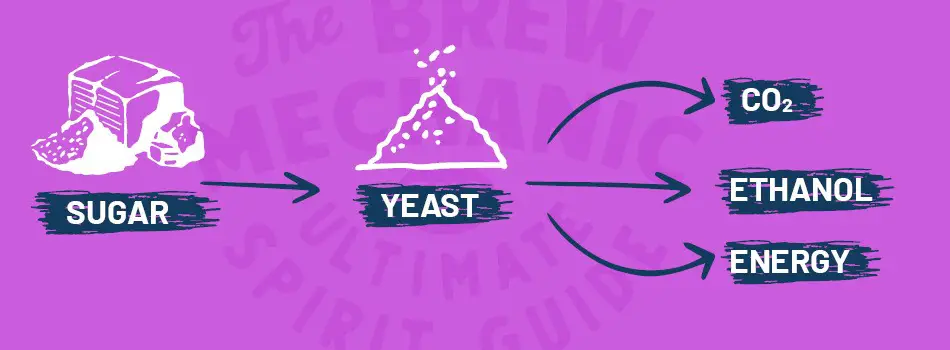
Reaction
| Sugar + Nutrients + H20 + Yeast | = Ethanol plus Carbon Dioxide = Energy exothermic reaction |
Ethanol – C2H6O abbreviated as “EtOH”
| Sugar | = | C12H22011 |
| Nutrients | = | Magnesium, calcium, Zinc, DAP (nitrogen) citric acid, Vitamins, Epsom salts are a few to mention |
| Water | = | H20 |
| Yeast | = | Produces ethanol from 8 to 20% depending on the type of yeast used and the purity you want. Lots of home work here |
Note:
The views by The Brew Mechanic are a guideline to help you decide which route to take. Either the Reflux or pot still route. There are notable differences between the two routes, so it’s important to do further research and consider the specific factors unique to your situation before making a final decision.
Reflux stills
Pot stills
When deciding which route to take, consider factors such as your experience level, your desired flavour profile, the types of spirits you want to produce, and any legal restrictions in your area. Ultimately, the choice between a reflux still and a pot still will come down to your personal preferences and goals as a distiller.
The four stages of your ethanol run
You must know and fully understand the temperature and stripping ranges of your still to remove methanol.
| Acetone | 56.6°C or 133.8°F |
| Methanol | 64°C or 147.2°F |
| Ethyl Acetate | 77.1°C or 170.8°F |
| Ethanol Range | 78.3 > 81.5°C or 172.9 > 178.7°F |
| 2 Proponal | 82°C or 179.6°F |
| 1 Proponal | 97°C or 206.6°F |
| Fuesel oils | 94 > 95°C or 201.2 > 203°F |
Download our Distilling Cuts Chart here
Yes I want this epic PDF plus get tips and tricks! You will be joining our distilling mail list. 🙂
Summary of sugar wash methanol risks
By following these tips if you are new to distilling, you can successfully distil a sugar wash and produce a high-quality spirit. Remember to always take safety seriously and be aware are no sugar wash methanol risks involved. With practice, you can become a skilled distiller and create your own unique spirits. Also, my new brewer, alcohol is simple to make.
Some common questions about sugar wash & methanol.
Last Updated on July 18, 2023 by The Brew Mechanic
Disclosure: I may receive affiliate compensation for some of the links below at no cost to you if you decide to purchase a product or service. You can read our affiliate disclosure in our privacy policy. The information provided is for entertainment only.

With 35 years of knowledge of being a chemical engineer in alcohol manufacturing plants, my mission is to teach the next generation of home distilling alcohol brewers at a supernatural speed.
My reviews are based on real-life experiences with reflux stills, sugar wash, troubleshooting and mystical chemical reactions.



